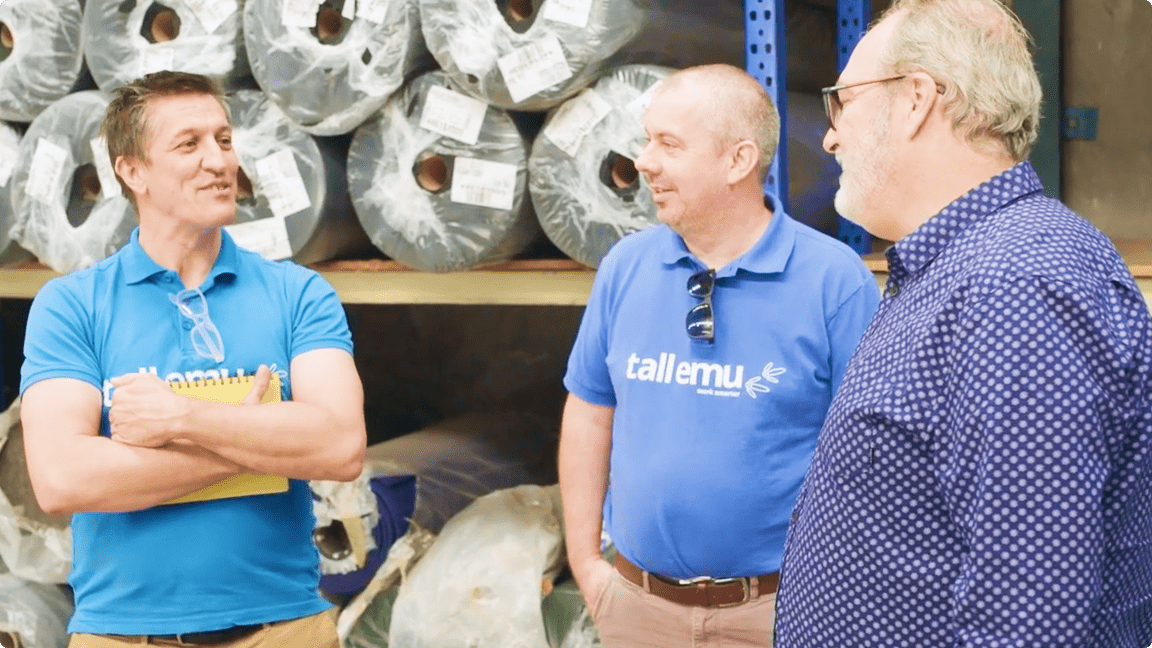What is CRM?
See our comprehensive guide to customer relationship management (CRM) software. Learn what it is and why you should use it in a business.
Watch Our Guide to CRMCRM Systems - More Than a Database
CRM is one of the fundamental pieces of software that any business, new or established, needs if it wants to expand without the growing pains
What is a CRM system?
CRM stands for Customer Relationship Management.
A CRM system is a platform that brings all your business activities together providing a complete view of all your interactions with a customer and that data can be shared with other CRM users. CRM systems are ideal in situations where companies have either lots of customers or lots of products or services.
What are the benefits?
Teamwork, efficiency, accountability and automation.
One system for all team members to use to run the entire business process. Better teamwork and work being delivered on time. One whole of business system means better customer service, and lets you do more with less. Automated tasks take the grunt work out of your day, and help make you more efficient.
How to choose a CRM?
If you sell goods or manage a lot of leads, Tall Emu CRM is likely to be a great fit for your business.
A CRM that integrates with your existing accounting software, and other platforms that you're already using every day will mean you don't need to jump from system to system to get the job done. The whole point of a CRM is to manage your customers, new and existing - and bring in all the data that allows you to sell more, and minimise resources to run your business.
What is CRM?
CRM stands for “Customer Relationship Management” and in classic CRM software it’s basically a big database of information about your sales leads – who they are, what they want and what you’ve discussed with them. Classic CRM focuses mostly on your sales pipeline. It’s a tool to track your leads and log the work you’re doing to try and close deals.
Centralising records of lead and sales activity over the entire business makes it easier to understand, manage and track what’s going on in your sales pipeline and makes it easier to sell more due to the proper record keeping, and sales rigor around following up.
CRM is excellent in cases where you have more than one salesperson, or you’re working on more than a handful of customers at once. You can always log in and see what’s going on, or extract sales and activity reports. It shines a light of transparency onto your sales process; makes the team more accountable and really does help you close by being more organised.
It’s a central source of truth, and it can replace Excel spreadsheets that you may already be using as a makeshift CRM.
Cloud CRM vs On Premise Desktop CRM
In the past, most CRM software was on-premises running on your own computer or server. This gives fast access to data whilst in the office, but makes it hard, expensive or at least inconvenient to access externally. It also forces all of the hardware costs, maintenance, security and support costs onto your business. Most small business owners are not security experts and there are many cases of small businesses having servers hacked and held to ransom.
Cloud software works in your web browser and is hosted and managed by the CRM company. The main advantage of web-based CRM software is that it can be accessed from any location on a variety of devices. The CRM company is responsible for maintenance of the software, security and infrastructure so you’re paying for a service, rather than servers.
Custom Developed CRM databases
Another option for CRM is custom CRM software, which is often written as a simple web site or as an access database. A good advantage of such a solution is that you have control over what gets done, and it can be intimately tailored to suit your business needs.
The downside of custom database software development is that everything you want – you pay for. Features that would be included off the shelf in CRM Software all have to be written especially for you. Things that you may take for granted in CRM software such as accounting integration, working with Outlook or Office 365 or your phone systems are potentially very costly pieces of work. This road can be fraught with danger if you pick a single person to write it for you, or an offshore development company.
What are the benefits of CRM Software
- Teamwork – data is shared in a single system so you can work as a team
- Accountability – know who is responsible for work, and what’s been done already
- Efficiency – A central system, integrated with other software you use brings day to day productivity savings
- Centralised source of truth – better customer service and insightful data
- Automation of tasks that before were done manually or just got forgotten
Tall Emu – a more modern CRM
One of the problems with CRM is often you’re handing your team just one more system to use. This can add to an already high workload and often causes CRM projects to fail through lack of use.
Our solution to this problem is to make your CRM an integral part of the everyday business processes:
- Web leads automatically entered into CRM.
- Inventory management
- Quoting, selling and payment processing
- Customer support and service
- Job and field service management.
- Asset management
- Download orders from shopping carts
- Sync with MYOB or Xero to transfer new sales
These features transform the CRM into a key business system which is used over the business, resulting in a powerful centralised database.



